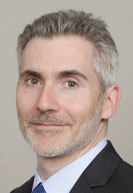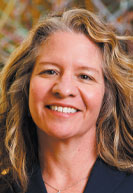Subscriber Benefit
As a subscriber you can listen to articles at work, in the car, or while you work out. Subscribe NowGraduates of non-American Bar Association-accredited law schools will soon be able to take the Indiana bar exam under rule amendments approved this month by the Indiana Supreme Court.
On Feb. 15, the justices issued an order amending Admission and Discipline Rule 13 to allow non-ABA graduates to petition to take the Indiana bar in two situations, laid in the amended Rule 13(4):
• If the applicant graduated from a non-ABA-accredited law school in the United States, was eligible upon graduation to take the bar in another state, and the BLE finds the applicant is qualified by education or experience to take the Indiana bar.
• If the applicant completed legal education outside the U.S., obtained a graduate degree from an ABA-approved law school in a program based on American law, and the board finds the applicant is qualified by education or experience to take the Indiana bar.
The changes to Rule 13 don’t go into effect until July 1, so non-ABA graduates won’t be able to petition for a waiver until then. The BLE will look at each application on a case-by-case basis, and if approved, those granted a waiver will be able to take the Uniform Bar Exam in Indiana in February 2025.
Purdue Global reacts
The leading proponent of the changes to Rule 13 has been Purdue Global Law School, an online-only law school based in California. Currently, California is the only state where Purdue Global Law graduates can take the bar.

Purdue Global Law Dean Martin Pritikin noted the school has been around for 25 years, but this is the first time a state other than California has made it possible for its graduates to take the bar exam immediately upon graduation.
“It’s been a long time coming for the school. It’s been around for just over 25 years,” Pritikin said. “… I hope it doesn’t take another 25 years for the next one.”
Nearly a year ago, Purdue University submitted its own proposed amendments to Rule 13 to allow Purdue Global Law graduates to take the Indiana bar. The proposal adopted by the justices was markedly different.
Still, “It’s very gratifying that Indiana is our home state,” Pritikin said, referencing the school’s ties to Purdue University Global. “It’s important to help people all across the country, but particularly, I want to be able to help address the access to justice crisis in Indiana, and I hope this will now enable us to do that.”
The lawyer shortage
A common refrain from Purdue Global Law in its efforts to open up the Indiana bar has been that doing so would help ease the state’s lawyer shortage by providing a new influx of recent grads who could practice in Indiana, not just California.

To that end, Indiana University Maurer School of Law Dean Christiana Ochoa said, “The court is looking for a number of solutions to address the shortage of lawyers in many of Indiana’s counties, and in their view, this is an important contribution to working our way toward solutions. I hope very much that this does help to address the lawyer shortage; it is a very significant concern and I hope it does that without compromising the quality of the bar in Indiana.
“… I know that the court is looking to, I believe, all of the law schools in Indiana to work with them in addressing the significant concern that we all share with respect to ensuring that that citizens in Indiana have adequate legal representation at important times of their lives,” Ochoa continued, “and we are entirely on board with assisting to find solutions to that very real challenge.”
When Purdue University released its initial proposal last March, the Indiana State Bar Association urged the Supreme Court to reject it. But in November, when the justices own proposal was released for comment, the ISBA determined it could support the court’s version of the amendments.

According to Senior Judge Thomas Felts, the 2024 ISBA president, the bar has discussed the rule amendments at length and feels like those amendments will help address the lawyer shortage.
“I think it’s a reflection of our time, a reflection of the current state of the law,” Felts said.
He added that the association is working on creating task forces to address access to justice in legal deserts. The task forces are exploring why those deserts exist, and they are also studying how student loan forgiveness plans might ease the problem.
Continued reservations
Like the ISBA, the Indianapolis Bar Association opposed Purdue’s initial proposed amendments to Rule 13. But unlike the ISBA, when the court released its proposal in November, IndyBar continued to urge caution.
Specifically, IndyBar posed three questions for the justices to consider:
• Will the acceptance of students from non-ABA-approved law schools lead to an even greater gap in practical, experiential education of students before they begin practicing law?
• Will the proposed modification of Rule 13 lead to increased access to service in Indiana’s rural areas?
• Does the all-volunteer Board of Law Examiners have the resources to conduct the case-by-case review of applications contemplated by the proposed amendment?

According to IndyBar President David Duncan, those reservations still exist.
“We understand and appreciate the need for some change to help with the lack of attorneys and the trend of attorneys not practicing in some of our rural districts,” Duncan said. “I do think that we have a little bit of reservation about whether or not these changes are going to have the intended effect of actually addressing the law lawyer shortage in Indiana.”
Both Felts and Duncan said their organizations are looking at what the medical profession has tried in terms of student loan forgiveness as a way of addressing the lawyer shortage.
“When we look at other licensed professions,” Duncan said, “there are some ideas there that seem to warrant merit.”•
__________
For more reactions to the Rule 13 amendments, pick up the March 13, 2024, issue of Indiana Lawyer.
Please enable JavaScript to view this content.
